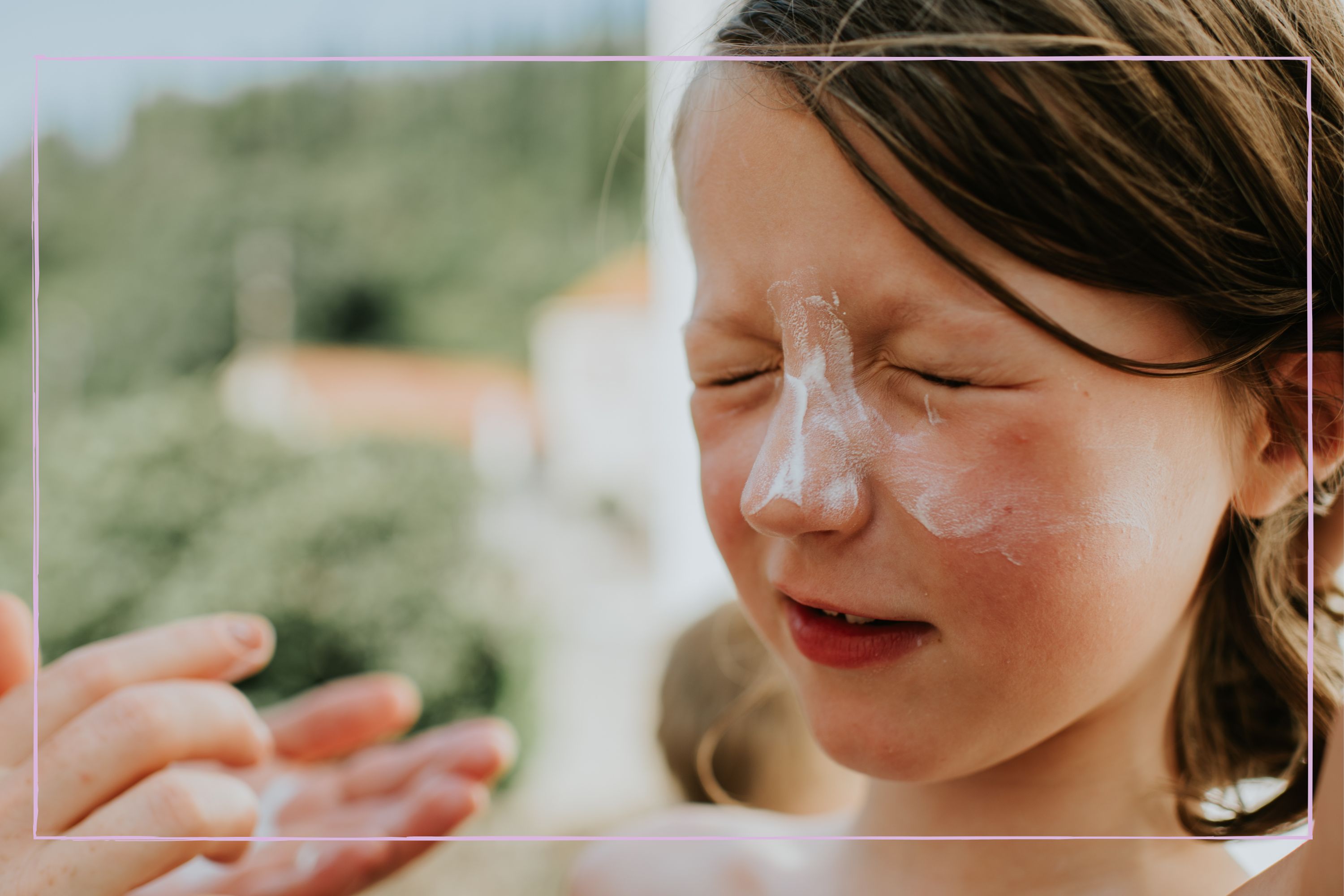
Getting kids to wear sunscreen isn't the easiest job as a parent, but with these parent-approved tips and ticks, you can get reluctant kids of all ages to keep their skin protected.
Summer is finally here and whether you're heading for a holiday or staying at home to play with the best outdoor toys for kids, it means it's time to stock up on the best sun cream for you and your family.
There's tonnes to consider when applying your SPF, like whether your SPF lotion has gone out of date. But when you're trying to cover your wiggling toddler or reluctant tween in sunscreen, it's hard to apply it properly - but it's vital to do so as ‘slapdash’ sun cream application means we’re getting less than half the coverage we need.
So how can parents get their less-than-interested kids excited about protecting their skin? Well, the GoodToKnow team have shared their favourite tips and tricks and it should make getting kids of all ages to wear sunscreen a simple task.
1. Use make up brushes for faces. Parenting writing Lucy Wigley swears by this trick to make applying sunscreen to the face that little bit easier. For kids who don't like the feel of thick SPF on their face, or are worried about getting product in their eyes and screaming at the stingy sensation it can cause, using a makeup brush to swipe on thinner layers of sunscreen and building it up from there can massively help avoid any meltdowns.
2. Use a sunscreen especially for faces. To further avoid any stinging sensation in kids' eyes, and the wiggling that results from it, Lucy also uses the La Roche-Posay UVMUNE Anthelios Ultra-Light Fluid SPF 50 on her children's faces to avoid any product causing eye-irritation. With the formulation specifically made for the face, it's much more gentle on the skin and it makes kids far less reluctant to put it on when they know they won't have to worry about it going in their eyes.
3. Sunscreen sticks! Simply twist up the product from the bottom, glide over the skin and you’re done! It's a game-changer for parents as, with no need to rub the skin, you can get SPF on quickly and with minimal effort.
The small packaging also makes sunscreen sticks the perfect travel companion, with them fitting easily into any handbag without fear of them spilling everywhere and causing a mess.
4. Get kids input. When your children are moaning about sunscreen, listen to their insight and find out what exactly is upsetting them, parenting writer Stephanie Lowe says. "This is a really valid 'hear them' and 'lead with curiosity' point. There could be a valid reason they don't want it on," she said. Her son 'always pushed back' when she got out the sunscreen, "But it turns out it made his neck itchy," she said, which is a valid reason not to want to wear SPF. So, Stephanie spoke to him about trying a new sunscreen and, she said, "He was much more open to it and now we have the right sunscreen brand for his senstive skin."
5. Get kids involved. "Kids have to apply their own sunscreen at school - yes even four year olds! - and depending on their ages, allowing some room for autonomy and independence is a winner," Stephanie says. She recommends using a Solar Buddies applicator to make the application a bit more fun. This also turns the chore into more of a game, which her son loves. "When my son was a toddler, I'd let him help squeeze some out on my skin and he did my arm while I did his," she said.
6. Start a conversation. "Have an honest conversation about staying safe in the sun," Stephanie adds. It's not a threat, but telling them that it's their choice if they want to wear sunscreen or not and then telling them what they can't do if they choose not to is a great way to instill understanding and reasoning in them. Saying something along the lines of, "Choosing not to have any on means we stay indoors to play. Let me know when you want to go outside and I can help you protect your body from the sun," is a great way to begin that chat.
Throughout summer, it's so important to keep kids' sensitive skin protected from harmful UV rays. We've got you covered with the tried and tested best sunscreens for your face and have revealed why your sunscreen might be giving you less protection than you think. Plus, as TikTok sunscreen conspiracies have boomed in recent months, here's how to educate your teens about misinformation.







